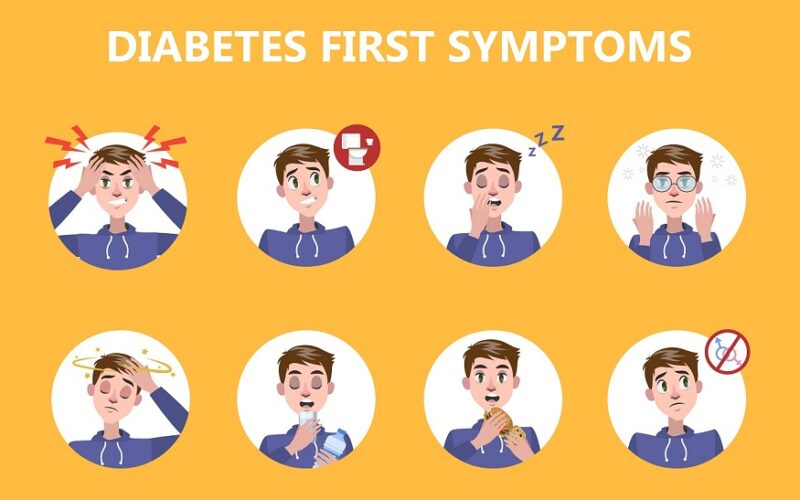Knowledge is essential in the complicated web of human health, especially regarding disorders like Type 1 Diabetes. Early diagnosis of these chronic diseases is critical for timely management and intervention. We will investigate the probable early signs of type 1 diabetes and discover why early detection is essential for living a healthier and more informed life.
Insulin Deficiency
When pancreatic cells are damaged, insufficient insulin is produced, causing blood sugar levels to rise. Individuals with Type 1 Diabetes and those who care for them can take proactive steps to effectively manage the condition if they are aware of the early signs of type 1 diabetes.
Polydipsia, or extreme thirst, is one of the silent messengers.
One of the first symptoms is an insatiable thirst. Thirst increases when blood sugar levels rise as the body attempts to expel excess sugar via urine. Understanding this small clue can aid in initiating early study into potential diabetes-related concerns.
Frequent Urination (Polyuria)
As blood sugar levels rise, the body produces more urine, increasing the number of bathroom visits. This noticeable difference in urine patterns may indicate the need for additional research into suspected diabetes symptoms.
Unexplained Weight Loss
Sudden or inexplicable weight loss should be investigated. When the body cannot use glucose correctly, it breaks down fat and muscle to provide energy.
Extra early signs of type 1 diabetes
Extreme Hunger (Polyphagia)
People with Type 1 Diabetes may be continually hungry, even if they ingest more calories. This paradoxical hunger is caused by the body’s inability to metabolize glucose efficiently, resulting in a continuous hunger sensation.
Tiredness and Weakness
A shortage of insulin prevents cells from using glucose as an energy source, resulting in tiredness and weakness. Persistent fatigue, even after obtaining enough sleep, may indicate undetected diabetes.
Seeking Medical Attention
Timely Consultation
It is imperative to seek timely medical consultation if any combination of these early indicators is noticed. Early intervention can aid in the proper management of the illness and help avoid consequences brought on by uncontrolled diabetes.
Blood Sugar Testing
In particular, tests that measure HbA1c and fasting blood sugar levels are crucial diagnostic instruments. These tests help confirm Type 1 Diabetes by offering a thorough picture of blood sugar control over a predetermined time frame.
Consultation with Experts
Diabetes specialists and endocrinologists are essential in diagnosing and treating Type 1 Diabetes. Speaking with these experts guarantees that you will have access to individualized care plans and continuous support.
Living with Type 1 Diabetes Beyond the Diagnosis
Constant Monitoring
Following a Type 1 Diabetes diagnosis, a journey of continuous blood sugar monitoring is essential. People can now take control of their health thanks to technological advances such as continuous glucose monitors (CGMs).
Insulin Therapy
Typically provided by injections of insulin pumps, insulin therapy is the cornerstone of Type 1 Diabetes management. Understanding the various types of insulin and how to deliver them correctly is essential for effective diabetic treatment.
Finally, awareness fosters empowerment.
Awareness of the early signs of type 1 diabetes is a decisive first step towards appropriately treating the illness. Individuals and carers can provide proactive diabetes care by identifying the body’s silent signals and seeking medical attention as soon as possible. People can better manage the challenges of living with Type 1 Diabetes with the support of personalized treatment regimens, medical technology breakthroughs, and more awareness. A comprehensive strategy for diabetes management must include a proactive mindset, frequent doctor visits, and lifestyle adjustments.

